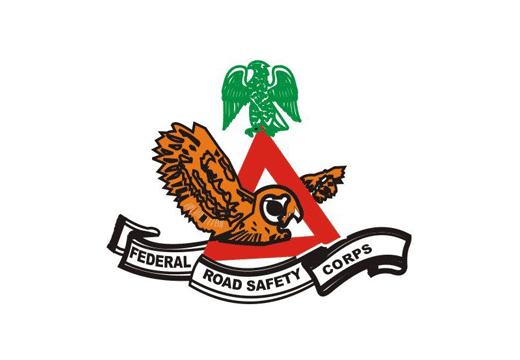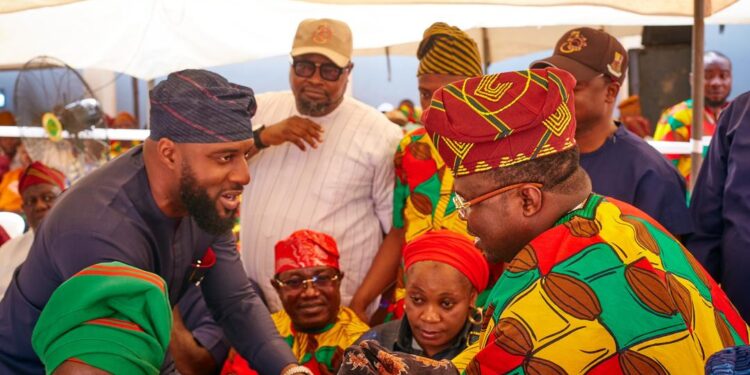society
TIME NIGERIA Ranks among Top 20 Magazines, Publications in Nigeria – Feedspot

TIME NIGERIA Ranks among Top 20 Magazines, Publications in Nigeria – Feedspot
As Group Managing Editor Makes Case for Financial Intervention for Credible Private Media Organisations
A US-based Independent Media-Research organisation, FeedSpot has recognised and ranked Time Nigeria Magazine among the best 20 magazines and publications in Nigeria.
FeedSpot dropped this on the 4th of January, 2024 in a post tagged: “Best 20 Nigeria Magazines & Publications” on its website link:
https://magazines.feedspot.com/nigeria_magazines/?_src=search
Feedspot, which discovers, categorises, and ranks blogs, podcasts, and influencers in various industry categories, has curated over 250,000 popular blogs and categorised them in more than 5,000 niche categories and industries.
“The ranking by Feedspot is based on several factors such as relevancy, industry representation, blog post frequency, social media follower counts and engagement, domain authority, age of the blog, Alexa Web Traffic Rank, and many other parameters.
The expert editorial team at Feedspot reviews each blog before adding them to the relevant category list, ensuring that only influential, authority, and trustworthy bloggers are included in the rankings.
Time Nigeria Magazine is a general interest publication, was founded by young media practitioners with the aim of creating uniqueness in magazine reporting in Nigeria. The magazine uses the finest ethos of journalism to promote peace among citizens, identify and harness the nation’s vast resources, celebrate achievements of government agencies, individuals, groups, and corporate organizations, and, above all, reposition the country for the needed growth and development.
Abdulrahman Aliagan, the Group Managing Editor and Publisher of Time Nigeria Magazine, expressed gratitude for the recognition by Feedspot, highlighting the magazine’s dedication to providing quality content to its readers.
He emphasized the importance of journalism in promoting peace and unity in Nigeria, as well as the magazine’s commitment to highlighting the achievements and potential of the country.
Aliagan noted, “For Time Nigeria being ranked among the top 20 magazines and publications in Nigeria by Feedspot further solidifies the Magazine’s reputation as a reliable and influential source of information. The magazine will continue to strive for excellence in reporting, contributing to the growth and development of Nigeria. ”
Aliagan seized the opportunity to urge government to the rescue of credible private media organizations in the face of numerous challenges, particularly, funding.
According to him, “Government plays a crucial role in creating an enabling environment for businesses to thrive, including media organizations. As Time Nigeria Magazine ranks among best 20 magazines and publications in the country, it is essential for the government to recognise the importance of encouraging investment in private media industry.
“Investing in private media organizations is vital for the growth and development of the industry. Media outlets are responsible for delivering accurate and objective information to the public, acting as the fourth estate and holding power to account. Robust investigations and in-depth reporting are crucial elements of journalism that can contribute to the overall development of any nation.”
Canvassing for financial intervention for private Media organization, Aliagan maintains that, “Media organizations require substantial financial resources to conduct investigations and consistently provide quality journalism. The need for government financial intervention in private Media cannot be overstated, as it enables the organization to expand its reach, improve its infrastructure, and attract top talent.
“In addition to government intervention in private media organization, Time Nigeria Magazine’s scribe is also soliciting for donations from individuals and corporate organisations who believe in the essence of media operations. These donations can support media in conducting more robust investigations and producing valuable content for its readers. It will also help to sustain the magazine’s independence and ensure the pursuit of truth and accountability.
“He also requests patronage from Nigerian businesses and advertisers. By advertising in the magazine, businesses can reach a wide audience and benefit from increased visibility and brand exposure. Special reporting and supplements offer unique opportunities for businesses to showcase their products, services, and initiatives to an engaged readership.
“By easing the process of doing business and encouraging investment in media organizations, government can promote a vibrant, free and independent media landscape in the country. This, in turn, leads to a more informed and engaged citizenry, fostering transparency, accountability, and the overall development of the nation. Aliagan maintains.
Time Nigeria was rated among other notable media organizations in Nigeria. Below are the order of ratings: 1. Pride Magazine, 2. Tell Magazine, 3. Today’s Women Magazine, 4. Legit, 5. City People Magazine, 6. Nigeria Magazine, 7. Financial Nigeria Magazine, 8. Brandessence Magazine, 9. The Will Town Magazine, 10. The News Magazine, 11. The Interview Magazine, 12. Time Nigeria Magazine, 13. Foreign Affairs Magazine,14. New Line Magazine, 15. i-D Magazine, 16. Punch, 17. Premium Time.
About FeedSpot
At FeedSpot is dedicated to discovering, categorizing, ranking magazines and publications across a wide range of niche categories. With thousands of magazines and publications available online, identifying influential, authoritative, and trustworthy magazines in specific industries can be a challenging task. Our goal is to simplify your research and connect you with industry-specific insights and publications.
With the help of FeedSpot, PR Agencies and Marketing Professionals can quickly identify specific media lists Editors and Journalists across a range of specialized categories. Whether you’re organizing a product launch, looking for product reviews, sending out press releases, looking for shout-outs or opportunities, collaborating on branding and advertising, or collaborating with affiliates, FeedSpot gives you the tools to get in touch with the appropriate editors for your particular requirements.
society
FRSC@ 38: SHEHU MOHAMMED STEERING NIGERIA’S ROAD SAFETY REVOLUTION TO GREATER HEIGHTS

FRSC@ 38: SHEHU MOHAMMED STEERING NIGERIA’S ROAD SAFETY REVOLUTION TO GREATER HEIGHTS
By Deputy Corps Marshal Bisi Kazeem (Rtd) fsi, MNIM, anipr
When Mallam Shehu Mohammed assumed leadership as Corps Marshal of the Federal Road Safety Corps (FRSC), he inherited not just an institution with history, but a national mandate that touches every family, every highway, and every community in Nigeria. At 38 years, the Corps stands tall as Africa’s model road safety agency, and under his stewardship, that legacy is not merely preserved, it is being boldly redefined.
Nigeria’s highways were once synonymous with fear. Before 1988, the World Health Organisation ranked Nigeria among the most dangerous countries in the world to drive. It was a troubling indictment that demanded courage and clarity of purpose. The establishment of the FRSC under Decree No. 45 of 1988 laid the foundation for reform. But sustaining and advancing that reform across decades requires visionary leadership, the kind now exemplified by Mallam Shehu Mohammed.
Today, under his command, the Corps is consolidating its position as one of the most technologically advanced and operationally efficient law enforcement institutions in Nigeria. With renewed strategic focus, the present leadership has deepened the Safe Systems Approach built on people, processes, and technology, ensuring that safety interventions are not reactive, but preventive and intelligence-driven.
One of the defining hallmarks of his administration is accelerated digital transformation. Within six months, over 3,000 personnel were trained to strengthen operational competence and technological adaptability. More than 95 per cent of the Corps’ administrative and operational processes are automated, supported by over 30 web-based applications that enhance traffic governance nationwide. From the National Crash Reporting Information System (NACRIS) to the upgraded e-ticketing platform, innovation is no longer optional; it is institutional culture.
Emergency response under the current Corps Marshal has become faster and more coordinated, with nationwide response time reduced dramatically from 50 minutes to 15 minutes. The 122 toll-free emergency line and 24-hour National Call Centre continue to serve as lifelines for distressed road users, reflecting a leadership that understands that every second counts.
Strategic stakeholder engagement has equally flourished. Safe corridor initiatives have been strengthened, collaboration with transport unions intensified, and enforcement around articulated vehicles tightened. The result is a significant reduction in tanker-related crashes, a development that speaks to deliberate policy direction and disciplined implementation.
Under Mallam Shehu Mohammed’s leadership, data has become a central pillar of enforcement and planning. Through strengthened collaboration with the National Identity Management Commission, the National Bureau of Statistics, and the Nigeria Customs Service, the Corps has advanced harmonized data systems that support evidence-based interventions. Transparent weekly crash trend reporting now guides targeted deployment and corrective strategies.
Nigeria’s standing on the global stage has also been reinforced. The country remains an active participant in the renewed UN Decade of Action for Road Safety (2021–2030) and continues alignment with international road safety conventions. These achievements build on the solid foundation laid by past leaders from Olu Agunloye and General Haladu Hannaniya to Chief Osita Chidoka, Dr. Boboye Oyeyemi, and Dauda Ali Biu, but under the present Corps Marshal, the momentum has unmistakably intensified.
Operationally, the Corps’ footprint now spans 12 Zonal Commands, 37 Sector Commands, over 300 Unit Commands, over 700 Station Offices, 59 Zebra Emergency Ambulance Points, and presence in all 774 Local Government Areas of Nigeria. Yet beyond physical structures lies a stronger institutional spirit, one driven by discipline, professionalism, and accountability.
From a nation once ranked among the most unsafe for motorists to a continental pacesetter in road safety management, Nigeria’s transformation story is inseparable from the strength of its leadership. At 38 years, FRSC is not simply celebrating longevity; it is celebrating purposeful stewardship.
Mallam Shehu Mohammed represents a generation of reform-minded leadership committed to smarter mobility systems, data-driven enforcement, and people-centered safety administration.
His tenure reflects continuity with courage sustaining the Corps’ proud legacy while boldly steering it toward greater innovation and measurable impact.
The road ahead is demanding. But under his steady command, Nigeria’s highways are safer, its systems smarter, and its future brighter.
Fashion/Lifestyle
Introducing “Atupaglowco” : Where Fragrance Meets Feeling; The Story of Our Beginning

Introducing “Atupaglowco”: Where Fragrance Meets Feeling; The Story of Our Beginning
Every great journey begins with a sense of anticipation. For us, it began with a simple belief that a space should do more than exist, it should speak comfort and glow.
In a world filled with noise, stress, and endless motion, we realized something powerful. Fragrance can transform not just rooms, but moods. A familiar scent can calm anxiety. A warm aroma can turn a house into a home. A gentle glow can bring peace after a long day. This realization gave birth to “Atupaglowco.”
Atupaglowco was not created to sell diffusers, room sprays, or candles. It was created to create experiences. To create moments. To create atmospheres where people can breathe, reflect, and feel whole again.
The name itself represents more than a brand. It represents warmth. It represents light. It represents presence. We remember the early days, the planning, the testing of scents, the moments of doubt, and the moments of excitement. Each candle poured was a step of faith. Each fragrance blended was a piece of our vision coming to life. We weren’t just building products; we were building something meaningful.
Our diffusers were designed to quietly fill spaces with elegance.
Our room sprays were crafted to instantly refresh and revive environments. Our candles were made to bring calm, beauty, and a soft glow into everyday life.
Atupaglowco was born from passion, patience, and purpose. This launch is not just the start of a business. It is the start of a movement to help people create spaces they love. Spaces that inspire rest. Spaces that inspire joy. Spaces that glow.
We believe fragrance is personal. We believe glow is emotional. We believe every space deserves both.
Today, we proudly introduce Atupaglowco to the world.
This is only the beginning.
society
Ajadi Hails Oyo Speaker Ogundoyin at 39, Describes Him as Beacon of Purposeful Leadership

Ajadi Hails Oyo Speaker Ogundoyin at 39, Describes Him as Beacon of Purposeful Leadership
A leading governorship aspirant of the Peoples Democratic Party (PDP) in Oyo State, Ambassador Olufemi Ajadi Oguntoyinbo, has congratulated the Speaker of the Oyo State House of Assembly, Rt. Hon. Adebo Edward Ogundoyin, on the occasion of his 39th birthday, describing him as “a symbol of resilience, maturity and purposeful leadership in Nigeria’s democratic journey.”
In a congratulatory message made available to journalists on Tuesday, Ajadi praised Ogundoyin’s steady rise in public service, noting that his emergence as Speaker at a relatively young age reflects the possibilities of responsible youth leadership when combined with discipline, vision and service.
“Rt. Hon. Ogundoyin’s leadership has shown that age is not a barrier to excellence,” Ajadi said. “At 39, he stands tall as one of the most impactful Speakers in Oyo State’s history—calm, inclusive and deeply committed to democratic ideals.”
Ogundoyin, who represents Ibarapa East State Constituency under the Peoples Democratic Party, has served as Speaker since 2019 and was re-elected to lead the 10th Assembly in June 2023. His tenure has been marked by legislative stability, improved executive–legislative relations and youth-inclusive governance.
Ajadi commended the Speaker for fostering unity within the Assembly and prioritising laws that strengthen grassroots development across Oyo State. “His humility, accessibility and focus on people-oriented legislation have earned him respect beyond party lines,” he said. “He exemplifies the kind of leadership Oyo State needs—one anchored on service, accountability and progress.”
The governorship aspirant further described Ogundoyin as a rallying point for young Nigerians aspiring to public office. “In a country searching for credible leaders, Ogundoyin’s story offers hope,” Ajadi added. “He has shown that when young leaders are trusted with responsibility, they can deliver stability and results.”
Ajadi wished the Speaker many more years of good health, wisdom and greater service to Oyo State and Nigeria at large, praying that his leadership journey continues to inspire a new generation of public servants.
Ogundoyin, one of the youngest Speakers in Nigeria, has continued to attract goodwill messages from political leaders, civil society actors and constituents, as Oyo State marks another year in the life of a lawmaker widely regarded as a steady hand in the state’s legislative affairs.
-

 celebrity radar - gossips6 months ago
celebrity radar - gossips6 months agoWhy Babangida’s Hilltop Home Became Nigeria’s Political “Mecca”
-

 society6 months ago
society6 months agoPower is a Loan, Not a Possession: The Sacred Duty of Planting People
-

 news6 months ago
news6 months agoTHE APPOINTMENT OF WASIU AYINDE BY THE FEDERAL GOVERNMENT AS AN AMBASSADOR SOUNDS EMBARRASSING
-

 Business6 months ago
Business6 months agoBatsumi Travel CEO Lisa Sebogodi Wins Prestigious Africa Travel 100 Women Award



